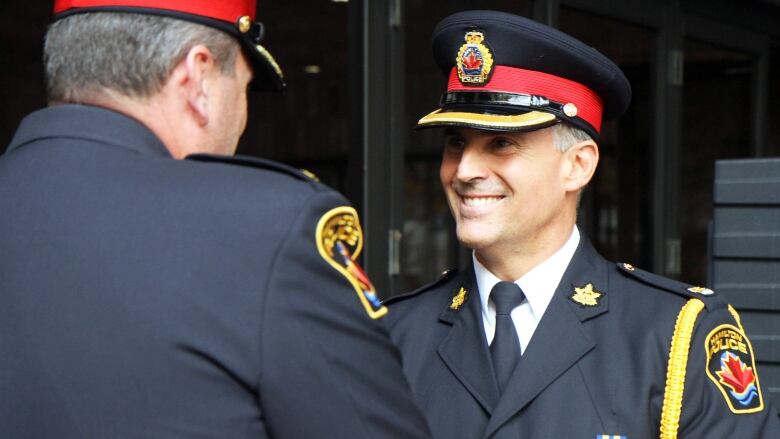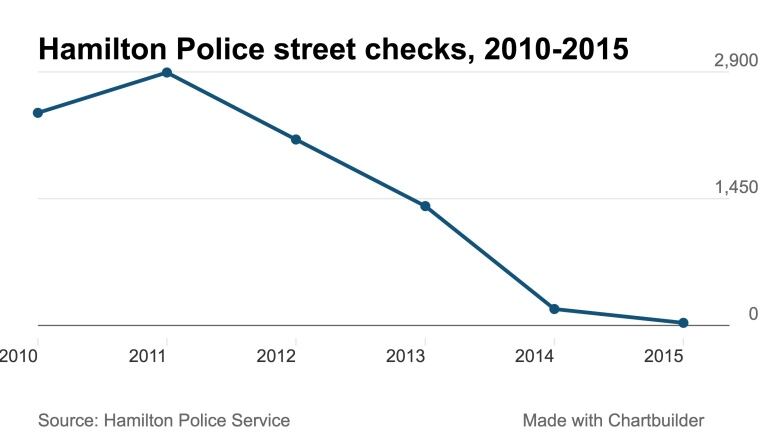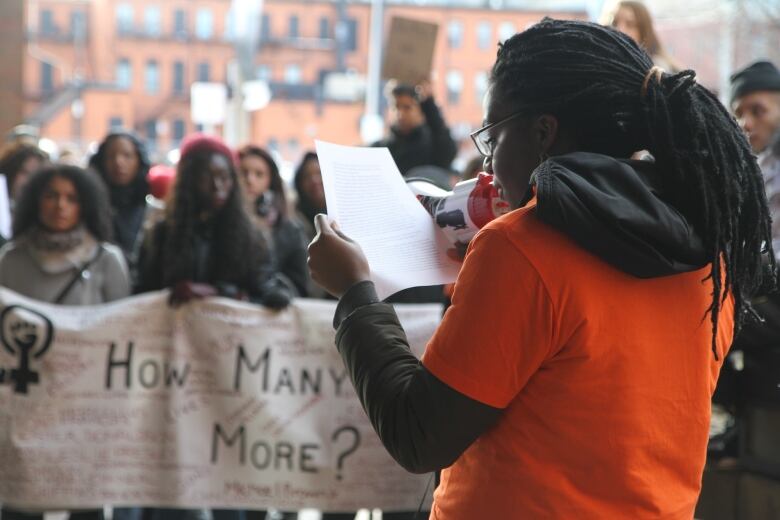Carding nearly disappears in Hamilton, and police are OK with it
Police say they don't need the ID-recording tool as much anymore in Hamilton

Hamilton Police say they haven't directed front-line officers to stop checkingIDs ofpeople in a controversial practice known as street checks or carding.
They also say they're not concerned about a dramatic drop in the practice from hundreds and thousands in previous years to just 30 in 2015.
That's a marked change in tone from last year, when top police outlined dire consequencesfor Hamilton safety should the practicebe limited.
- RELATED:Hamilton Police chief: Limiting carding will make Hamilton less safe
- RELATED:Hamilton Police carding numbers plummet in 2015
The tool was used by police stopping people on the street who may or may not be otherwise under investigation, asking for ID and recording that information indefinitely in a police database.

Even though it seems to havehappened without any directive from senior officers, the drop to 30 last year is no problem, police say.Crime is down across the city. The ACTION team's mandate has expanded. Plus, five years of carding historymeansofficers already know who they need to know.
"It's not concerning to the Hamilton Police Service, because we know that our members are out there, solving crime, relentlessly pursuing offenders," said Acting Chief Ken Weatherill, after the police service's oversight board meeting on Thursday.
"I've not limited, or no direction has been given at all to anyone to limit that tool."
'There is no other tool'
Weatherill said they're not just continuing the practice and calling it something else.
"There is no other tool," Weatherill said. "The Hamilton Police Service is not looking at another reporting mechanism to obtain the information."
He said when the number of street checks conducted by officers registered in the thousands, like in 2013, an influx of new officers were using the practice to have a recordable format to show they were getting to know their community.
"So as you know your people, there's no longer a need to do those documented incidents of running into someone that you know," Weatherill said.

"We are encouraging our officers, as much as we ever have in the past, to interact with their community," he said. "Speak with them, relate with them, work with them to keep the street safe."
When Toronto's police board moved to curb the carding practice there, their numbers plunged. Butastudy commissioned by the oversight boardfound the practice of stops and questioningwas still ongoing officers just weren't filling out the cards that would allow the interactions to be tracked as carding.
New carding rules
The huge drop comes as police across the province face new rules governing interactions when they ask for and record a person's ID.
Hamilton's police oversight board will team up with other big cities' boards across Ontario to come up with policies to govern interactions where police ask for individuals' ID like carding or street checks.
The board has until July 1to:
- Figure out policies for whatdocument should be given to individuals whom police stop.
- Codify policies for data retention from street checks that were done before 2017, as well as those to come.
- Describe what should be included in reports from the chief about the service's street checks or similar interactions.












_(720p).jpg)


 OFFICIAL HD MUSIC VIDEO.jpg)
.jpg)



























































































